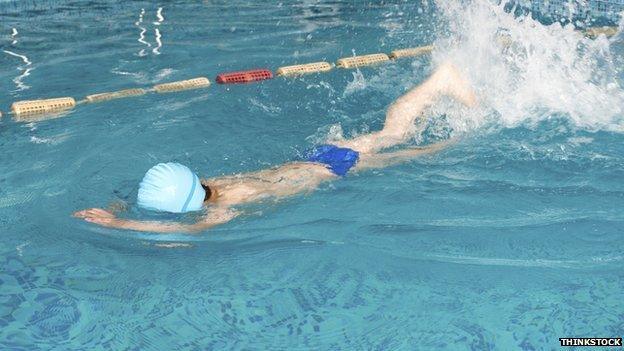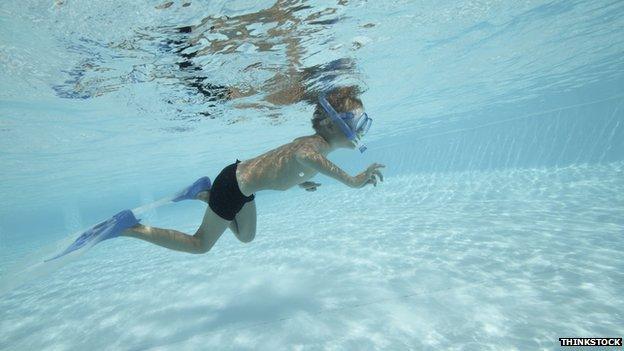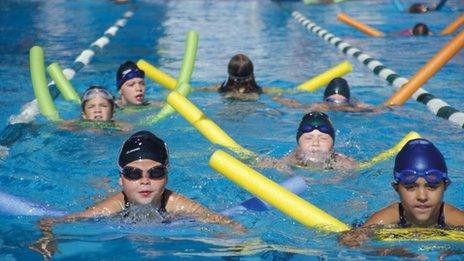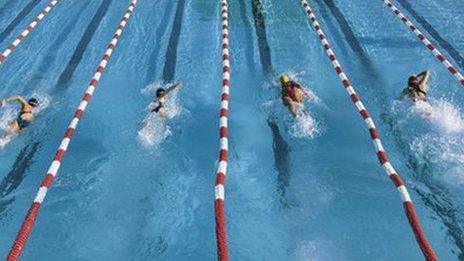Primary schools 'must offer more swimming'
- Published

Each child needs to spend about 25 hours learning to swim, ASA recommends
Almost half of primary school children in England are unable to swim a length by themselves, a report says.
The Amateur Swimming Association report says more than 1,000 primaries do not offer swim lessons, even though it is a skill on the national curriculum.
The ASA says other schools do not ensure that pupils spend enough time in the water to learn how to swim unaided.
The government says it is giving primary heads £150m a year of ring-fenced funding to improve school sport.
The ASA's annual census, based on a survey of 900 primary schools, indicates 45% of seven- to 11-year-olds are unable to swim 25m (82ft) - the length of an average-sized pool - unaided.
This is a slight improvement on last year, when 51% of youngsters in this age group could not swim 25m.
The report describes this as "a very positive step forward and certainly a reason to celebrate in the short term", but it says all parties must do more.
Safe around water
Pupils should leave primary school able to swim 25m unaided and be knowledgeable and safe around water and to do this, the report says, each child should spend about 25 hours learning to swim.

Pupils now have 18 swimming lessons on average, compared with 16 last year
The latest findings suggest nearly 1,300 (6.6%) of primaries do not teaching swimming to seven- to 11-year-olds, even though it is on the curriculum.
While pupils now have 18 swimming lessons on average, compared with 16 last year, they spend just under 10 hours in the water, ASA says, with the average swimming lesson lasting about 33 minutes.
"If primary schools can commit to adopting the recommended approach, we estimate that approximately 200,000 additional children would leave primary school being able to swim and gain an active start to life," the report concludes.
The research also suggests 40% of parents are unaware of their child's progress in water safety and swimming.
Swimming charter
The association is calling for primary schools to sign up to its new School Swimming Charter, which will offer them help and support to provide swimming schedules for pupils.
ASA is also asking politicians to support calls for the schools watchdog, Ofsted, to be more rigorous in their assessment and reporting process of school swimming.
Acting chief executive, Ashley Beaveridge, said: "Swimming isn't just a leisure activity or a way for young people to keep healthy, it's a life-saving skill that every child has the right to learn.
"As such, it is concerning that despite school swimming being a national curriculum requirement, nearly 1,300 primary schools still do not offer swimming lessons.
"Our research shows that school swimming is often the only opportunity many children have to learn to swim, so it is vital that we look at the barriers preventing primary schools from allocating the required time."
A spokeswoman for the Department for Education said: "We agree that swimming is an important skill to learn for life, which is why it is compulsory in the national curriculum for primary-age pupils and by the age of 11, children should be able to swim at least 25m unaided."
"We are giving primary head teachers over £150m a year of ring-fenced funding to improve school sports, which schools can use to provide extra swimming lessons."
- Published17 May 2012

- Published17 May 2012
